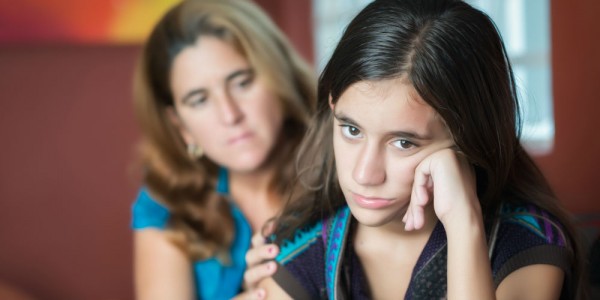While adoption is a wonderful way to grow a family, there are issues with adoption-related suicide and other forms of trauma that come with it. Here are some points to remember.
“Adoption is when a child grows in its mommy’s heart instead of her tummy.”
“Born not from our flesh but born in both our hearts, you were longed for and wanted and loved from the start.”
In many homes with adopted children, you will find quotes like these hung proudly on the wall with family photos. It is truly heartwarming and wonderful to know that a happy family does not have to share the same genetic material. Yet, even when an adopted child has the most loving and ideal of homes, many adopted children have a deep-seated feeling of being lost, coupled with a fear of rejection (Riben, 2015). In fact, studies have found that the suicide rate of adoptees is four times greater than the suicide rate of non-adoptees (Keyes, et al., 2013).
If adopted children are loved and cherished and raised in wonderful, stable homes, why are they more likely to commit suicide?
Children are placed for adoption for a myriad of reasons. It is true that many are born to mothers whose choice was based on reasons of selflessness and love, but unless the adoption is open or semi-open, the child and the adoptive parents may not know the reasons behind the placement. The stark reality is that some adopted children were abandoned, unwanted, abused, neglected, or was even stolen and made victims of sex trafficking, slavery, or other crimes. Sometimes adoptive parents and adoption agencies are aware of the circumstances surrounding the placement; sometimes they are not.
Even when a child is placed under the best of circumstances, as one professional stated, “The separation of a child from his mother is a type of trauma” (Evans, 2013).
“McCauley Evans describes three reasons for the disproportionately high percentage of adoptee suicides: 1) Adoption—or more precisely the separation from one’s mother—is a trauma. 2) Adoptees lack a complete, accurate, and up-to-date medical history, which may include depression or even suicide. 3) Adoptees don’t want to upset their adoptive parents with concerns about depression or anything that could be seen as ingratitude, including normal, healthy curiosity about their roots” (Riben, 2015).
One adoptee said that she is “painfully conscious of an invisible line dividing her from her family” (Riben, 2015) because her looks and even personality characteristics are different from the rest of her family. These feelings also create guilt feelings because she has a wonderful, loving family. Questions about medical history and unknown potential genetic predispositions to certain illnesses also create anxiety in many adoptees (Riben, 2015).
Anxiety and depression can also occur because, even though an adoptee may have only known love and family security, adoptees may grapple with the idea that if they were chosen, then it is possible for them to be unchosen (Riben, 2015). This idea can occur even if the child has only ever been shown unconditional love and acceptance.
So, what can adoptive families do? First of all, families must recognize that their child may have feelings of depression, anxiety, abandonment, and loss, even if their adoption occurred during infancy, especially if the circumstances surrounding the placement are not known. Adoptive families and friends should avoid telling the adoptee that they are lucky to be adopted because luck can run out (Riben, 2015). Doctors and other professionals encourage adoptive parents to help their child learn as much as they can about their biological heritage if the child has a desire to know (Evans, 2013). Parents who have frequent and open conversations with their child about their adoption are more likely to be aware of the concerns and feelings of their child and will be able to help their child navigate through the fears that naturally occur. Adoptive parents need to be extremely aware that even though they have loved their child from the start, that their adoptive child may need more than love.
Author’s note: All the articles I encountered in my research talked about adoption in general. There was no differentiation between types of adoption, between adoptees who had relationships with birth parents and those who did not, or between closed and open adoptions.
References:
Evans, M. M. (2013). Understanding Why Adoptees Have a Higher Risk for Suicide. Forefront Online. Retrieved October 2015.
Keyes, M. A.; Moore, S. M.; Sharma, A.; Iacono, W. & MCgue, M., (2013). Risk of Suicide Attempt in Adopted and Non Adopted Offspring. Pediatrics Online.
Riben, M. (2015). Toward Preventing Adoption-Related Suicide. Huffington Post.
Do you feel there is a hole in your heart that can only be filled by a child? We’ve helped complete 32,000+ adoptions. We would love to help you through your adoption journey. Visit Adoption.org or call 1-800-ADOPT-98.

